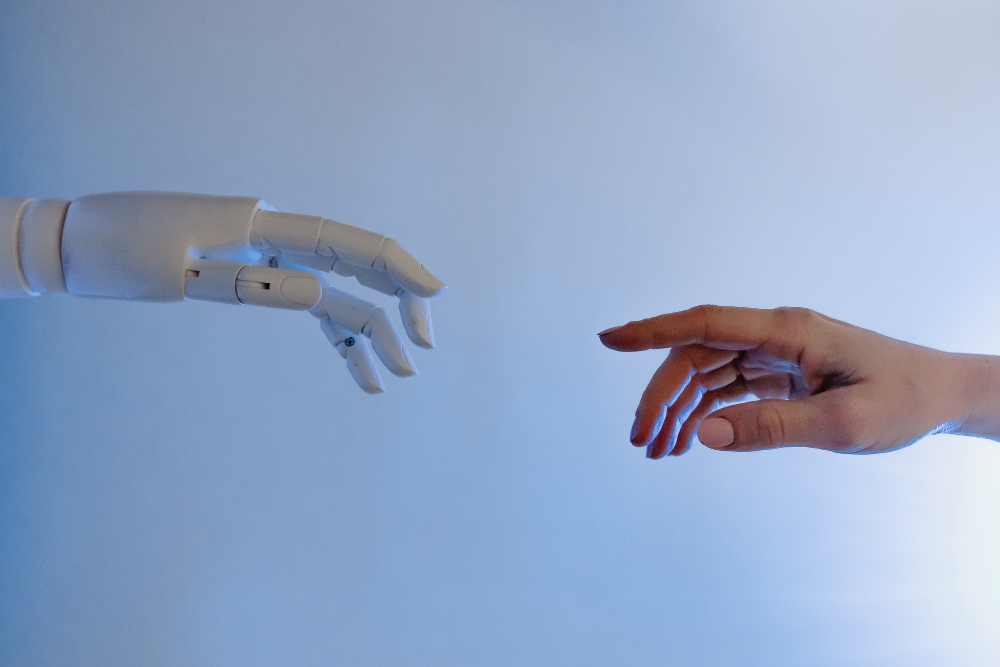It sounds like the kind of headline you’d see on LinkedIn right before it blows up your feed with hot takes: “IBM Layoffs: 8,000 HR employees replaced by an AI chatbot called AskHR.”
Cue the outrage, the jokes, and the fears about robots stealing jobs.
But here’s the thing – like many stories in the age of clickbait and half-truths, it’s more complicated. Yes, AI is changing HR. Yes, IBM is experimenting with automation. And yes, people did lose jobs. But did IBM really fire 8,000 HR workers for a chatbot? Not exactly.
The Buzz Around Layoffs at IBM
When people hear “IBM layoffs,” it immediately makes headlines. After all, IBM is one of the biggest tech companies in the world. For decades, it has been a symbol of innovation, stability, and employment. But in recent years, the company has been quietly shifting its footprint, cutting some roles, hiring in others, and trying to adapt in a world where artificial intelligence is no longer a futuristic dream but a daily reality.
The rumor about 8,000 HR workers being replaced by AI came after a round of layoffs in 2024 and early 2025, where IBM confirmed that it was trimming back-office functions, especially in human resources and accounting.
The company’s CEO, Arvind Krishna, even said that some HR tasks could be automated, and IBM started rolling out its AI-powered chatbot, AskHR. That tiny detail snowballed into the viral claim that thousands were “replaced by a robot.”
IBM, AI, and the Myth of the 8,000
Here’s the reality check:
- IBM confirmed automation in HR roles but at a smaller scale. Hundreds, not thousands.
- AskHR handles routine questions like payroll queries, vacation requests, policy clarifications.
- The company did not let go of 8,000 employees in HR alone. Instead, IBM has been balancing cuts in back-office jobs with new hires in engineering, marketing, and client-facing roles.
So while layoffs at IBM have definitely happened, the idea that a single chatbot walked into HR and sent thousands of employees packing is, frankly, an exaggeration.
Why the Rumor Stuck
So why did people believe it?
Because it fits into a narrative we’re all primed to expect:
- AI is replacing workers.
- Tech companies are ruthless.
- CEOs quietly manage layoffs while boasting about innovation.
And to be fair, that narrative isn’t entirely wrong. From Microsoft to Google, nearly every major tech firm has announced a round of layoffs while simultaneously investing billions in AI. Employees see the writing on the wall, and the fear feels justified.
But IBM’s case is a bit different. While it has reduced HR headcount, the company has also been hiring in areas like cloud computing, hybrid systems, and AI engineering. Instead of just letting go, it has been retraining and reallocating where possible.
Layoffs at IBM (The Bigger Picture)
The IBM layoffs of 2023 and 2024 weren’t isolated. They were part of a broader shift across tech companies, where the focus has been on efficiency and innovation.
- In 2023, IBM announced plans to cut certain back-office roles, affecting human resources and accounting.
- By 2024, reports suggested that about 200 HR workers were let go as AskHR scaled up.
- In 2025, rumors spread about 8,000, but IBM says the figure was inflated.
The company’s strategy? Leverage AI to cut repetitive work, retrain staff for higher-value roles, and invest in areas like engineering, hybrid cloud, and AI consulting.
IBM’s layoffs may feel cold, but from a business perspective, they signal a clear direction: automation where possible, human expertise where necessary.
When AI Replaces… But Doesn’t Replace
Let’s talk about AskHR.
The chatbot has become a poster child for what AI can do in HR. It can answer 94% of employee questions instantly, from “How many vacation days do I have left?” to “What’s the company policy on parental leave?”
That’s a big efficiency win. Workers don’t need to wait days for HR to respond to simple requests. But AskHR isn’t handling the tough conversations. It’s not managing conflict, navigating sensitive employee issues, or strategizing workforce planning.
So did AskHR replace HR workers? In some roles, yes. For routine tasks, automation is simply faster and cheaper. But the deeper truth is that AI is replacing tasks, not entire roles—at least not yet.

How to Solve the AI Skills Shortage with Smart Outsourcing Strategies
As the race to harness artificial intelligence intensifies, companies are realizing they can’t do it all in-house. In this article, we explore why the demand for outsourced AI development is rising—and what it means for the future of tech.
The Marketing Spin vs. Reality
One interesting twist: IBM has been careful about how it frames the story.
Officially, IBM says AI is “augmenting” human roles. But if you’re one of the employees let go, that might sound like marketing spin. After all, if your role gets automated, you don’t care if the company calls it “augmentation” or “replacement.”
This is where the tension lies. Companies like IBM and Microsoft want to market themselves as AI-first innovators. But the real human cost – the layoffs, the lost loyalty, the need to retrain – isn’t always highlighted in the press releases.
The Role of the CEO
Arvind Krishna, IBM’s CEO, has been one of the loudest voices warning that AI is replacing certain types of work. He’s also said that the company will continue hiring in growth areas.
But here’s the paradox:
- On one hand, he’s the CEO who must reassure investors about efficiency, revenue, and innovation.
- On the other, he’s the employer who has to manage layoffs and deal with the impact on employee morale.
It’s a delicate balance, and one that many CEOs across tech companies are struggling with in 2025.
The Round of Layoffs Across Tech
IBM isn’t alone. Microsoft, Google, Meta – all have announced layoffs while ramping up AI. In some cases, the layoffs have been framed as necessary to invest in future innovation.
For workers, though, the message feels clear: AI is replacing parts of your job.
Whether you’re in HR, accounting, or even marketing, the pressure is on to prove your value beyond what a chatbot or algorithm can do.
What Does This Mean for Employees?
If you’re an employee in HR or any back-office function, the IBM layoffs are a warning signal. AI is replacing certain tasks, and companies will continue to quietly invest in automation.
But here’s the flip side: employees who can adapt, retrain, and manage AI tools will become even more valuable. HR workers who know how to use AI chatbots, analyze workforce data, and consult on strategy are not just safe – they’re essential.
The job market in 2025 isn’t about fighting AI. It’s about learning to manage it.
Marketing the Future of Work
Interestingly, this whole story also reveals how marketing shapes the way we understand layoffs.
- IBM’s official statements focus on efficiency and innovation.
- Media headlines highlight big scary numbers like “8,000 layoffs.”
- Public debates turn into discussions about loyalty, automation, and the future of work.
The truth is somewhere in the middle. IBM’s layoffs may be real, but they’re not the dystopian picture of 8,000 workers replaced by a single chatbot. They’re part of a longer, more complex story about how firms are managing the shift to AI.
The Human Side of IBM Layoffs
Let’s not forget: behind every “round of layoffs” is a worker who just lost their job.
For HR professionals, that’s particularly ironic. They’re usually the ones delivering WARN notices and managing unemployment files. When AI is replacing parts of their own role, the impact hits twice as hard.
And here’s where IBM and other companies need to tread carefully. Employee loyalty is fragile. If the message is “we’re letting you go because a chatbot is cheaper,” don’t expect much goodwill left behind.
Accounting for the Future
IBM’s layoffs in HR and accounting roles highlight a trend: back-office jobs are under pressure. These are the roles most likely to be automated because they’re rule-based, repetitive, and easy to train an algorithm on.
The question for 2025 and beyond: How do companies manage the economics of automation without losing the human side of employment?
Did IBM Really Fire 8,000 HR Staff for a Chatbot?
No. But that doesn’t mean the fear is unfounded.
- IBM layoffs did happen.
- AI is replacing tasks in HR and accounting.
- Hundreds of employees were impacted, and future rounds of layoffs may take place as automation scales.
- The company’s CEO has openly warned about the impact of AI on the workforce.
- Yet, IBM has also hired engineers, invested in innovation, and retrained staff where possible.
The truth? It’s not man vs. machine. It’s man and machine if you’re willing to adapt.
So next time you see a headline claiming that IBM replaced thousands with a chatbot, remember: the story is both less dramatic and more complicated. AI didn’t replace 8,000 HR workers overnight. But the signal is clear – automation is here, and the companies that learn to manage it well will quietly shape the future of work.
And maybe that’s the real headline: “IBM’s AI quietly reshapes HR while the world debates the numbers.”
At iScale Solutions, we help businesses find that balance. By combining automation with skilled outsourced teams in HR, accounting, and software engineering, we make sure companies can scale smartly without losing the human touch. Chatbots may work overtime, but people still power innovation — and that’s where we come in.
